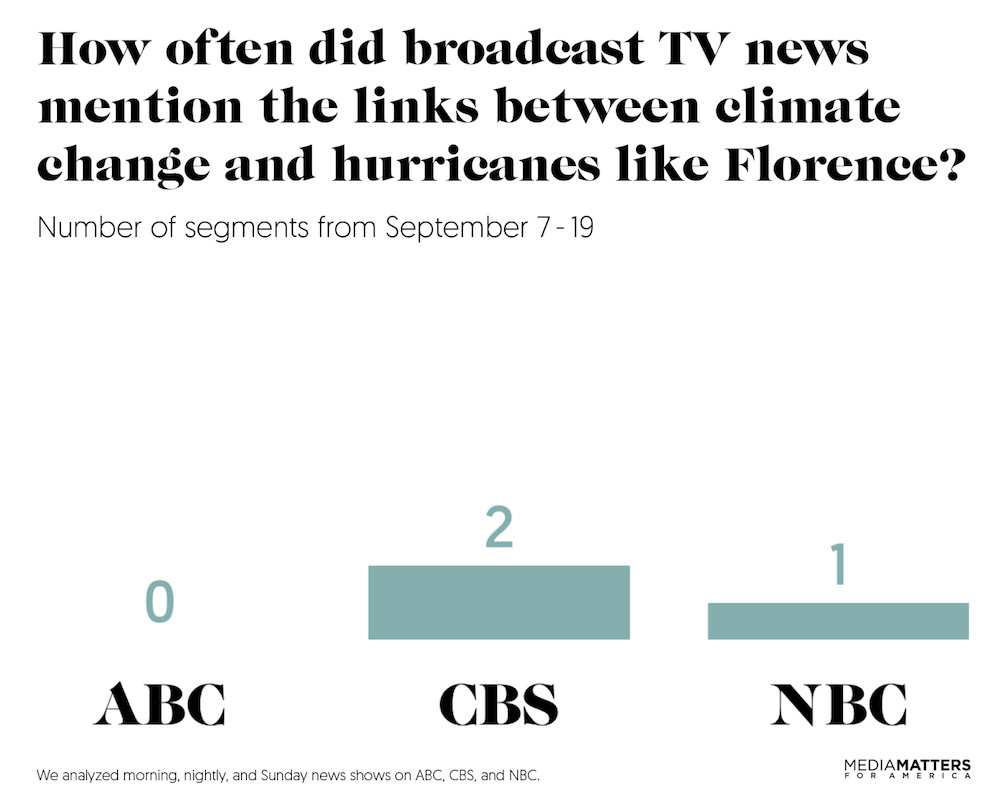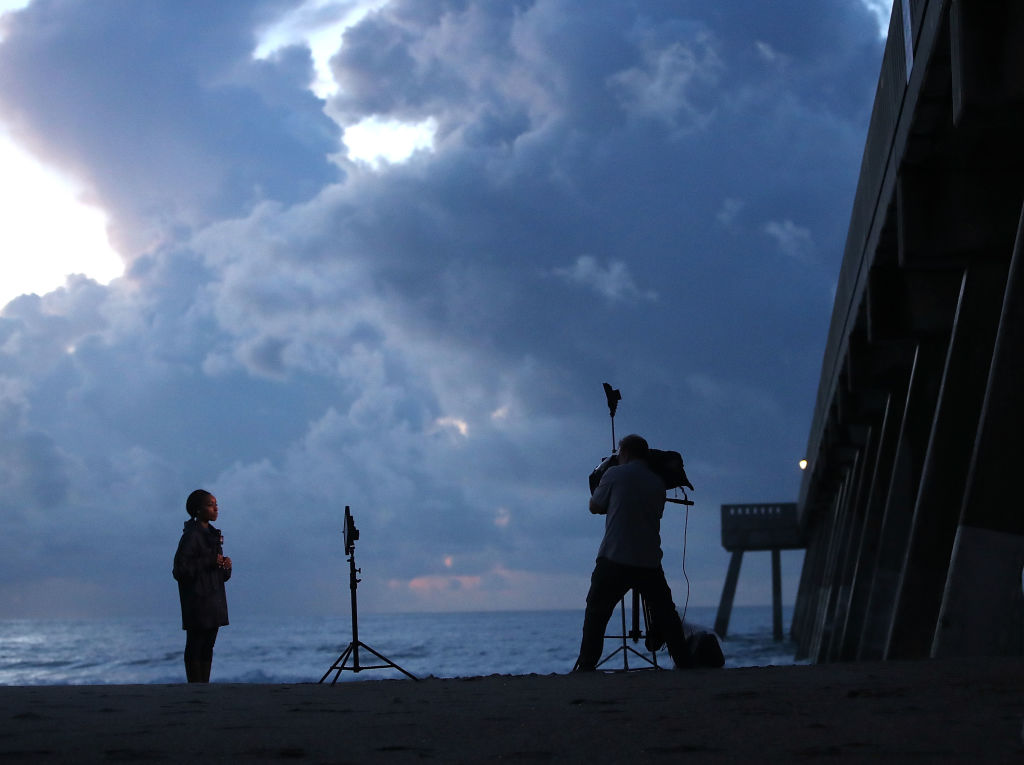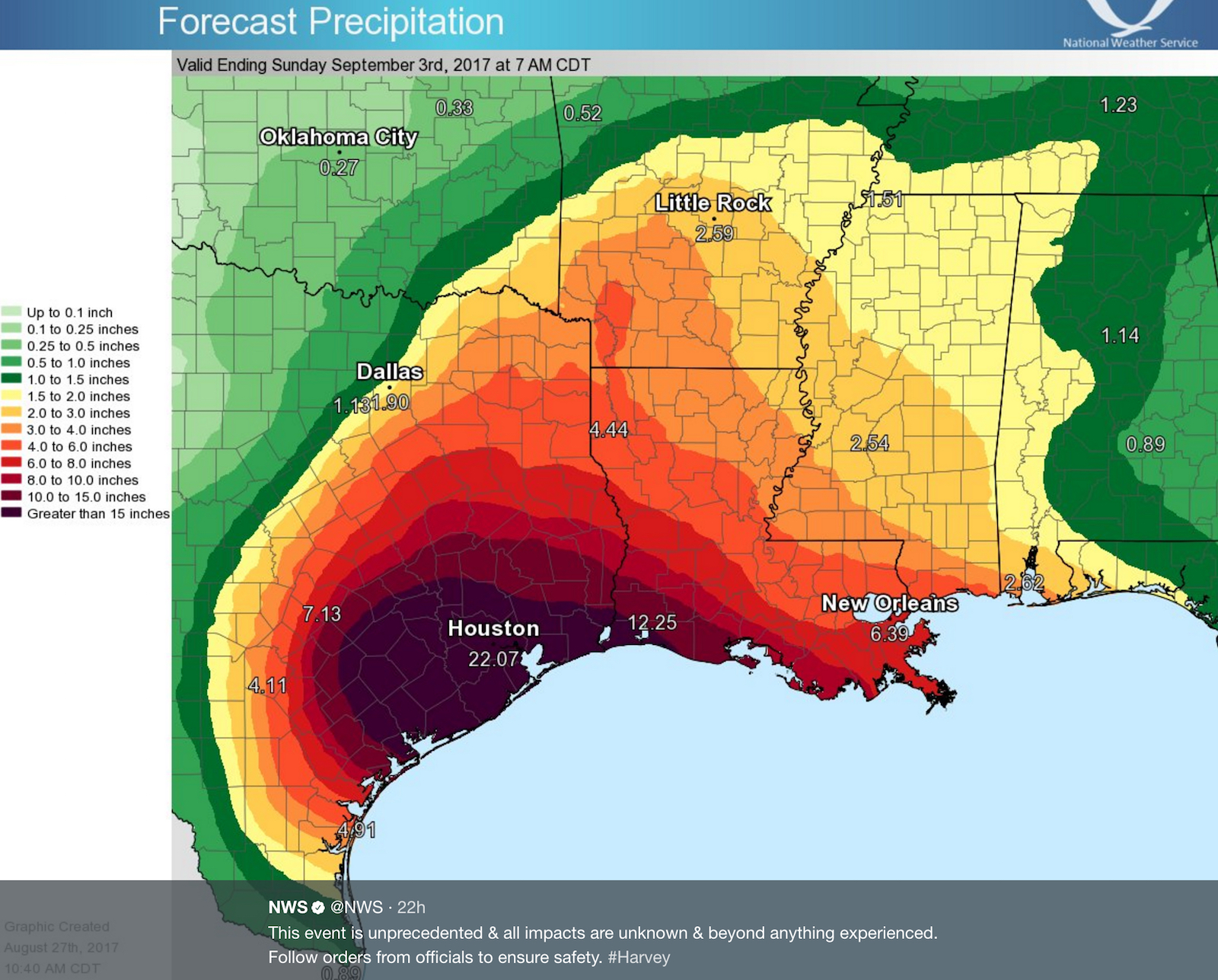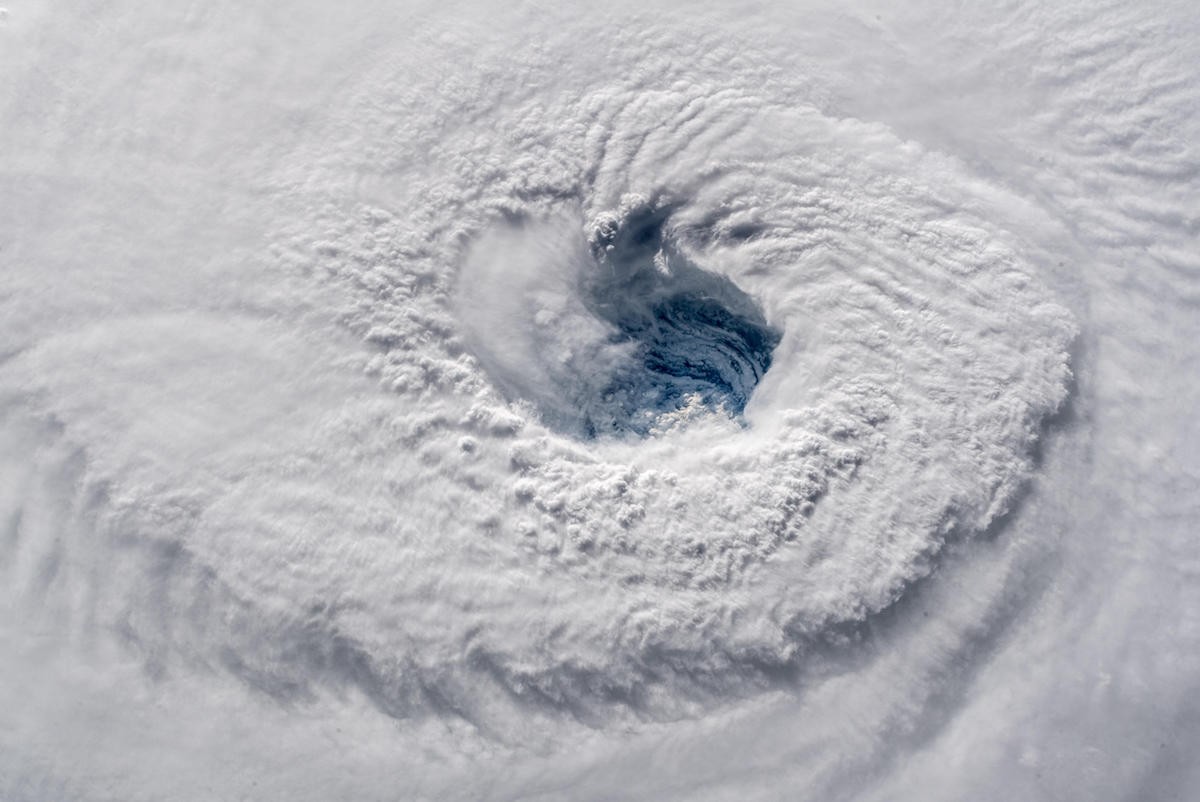The major television networks continue to downplay the role climate change plays in catastrophic superstorms like Florence, a new analysis finds.
That makes them complicit in the country’s ongoing failure to respond decisively to the gravest preventable threat we face today.
A new analysis by Media Matters for America looking at the TV coverage of Hurricane Florence from September 7 to 19 found that “ABC failed to air a single segment that mentioned the links between climate change and hurricanes like Florence.” NBC had one segment and CBS, two.

Of the three major cable channels, MSNBC aired four pieces on the climate-hurricane link, while CNN ran two. Fox News aired the most, six pieces, “but these either downplayed or outright dismissed the link between climate change and hurricanes.”
Overall TV coverage “was down from a year ago.” Most networks discussed the link between hurricanes and climate change in fewer stories than they did during last year’s Hurricane Harvey coverage.
But Florence was a storm that was supercharged by global warming in many of the same ways that Harvey was — more ocean heat to fuel the storm, higher sea levels to worsen the storm surge, and, perhaps most importantly, more atmospheric moisture and a stalled weather pattern leading to a devastating deluge followed by ferocious flooding.
This is just the kind of super-storm pattern that climate scientists have been predicting — and that the public needs to be informed about.
On top of that, for the first time a major study on the climate link to Hurricane Florence came out before the storm even made landfall. The authors of that September 12 analysis, “The human influence on Hurricane Florence,” found that human-caused global warming has supercharged the atmosphere so much that it boosted the very worst of the projected rainfall totals by more than 50 percent.
So the failure to clearly explain to the public that these storms are supercharged by global warming — and that worse is yet to come — is a dereliction of the basic duty of the media to inform the public.
The media’s failure is widespread. More than half of Americans say they do not hear about global warming in the media even once a month, according to an April survey of 1,278 adults by the climate change communication programs at Yale and George Mason University (GMU).
And this climate silence reinforces the dangerously wrong notion that climate change isn’t an existential threat that requires urgent action.
The result, according to an earlier Yale/GMU report, is a climate “spiral of silence” in which “even people who care about the issue, shy away from discussing it because they so infrequently hear other people talking about it — reinforcing the spiral.”
We urgently need a broad national conversation about the danger posed by unrestricted carbon pollution and the many climate solutions that are available today.
But until the media treats climate change with the seriousness the issue demands, such a conversation, let alone the kind of decisive action we need, seem as far away as ever.



